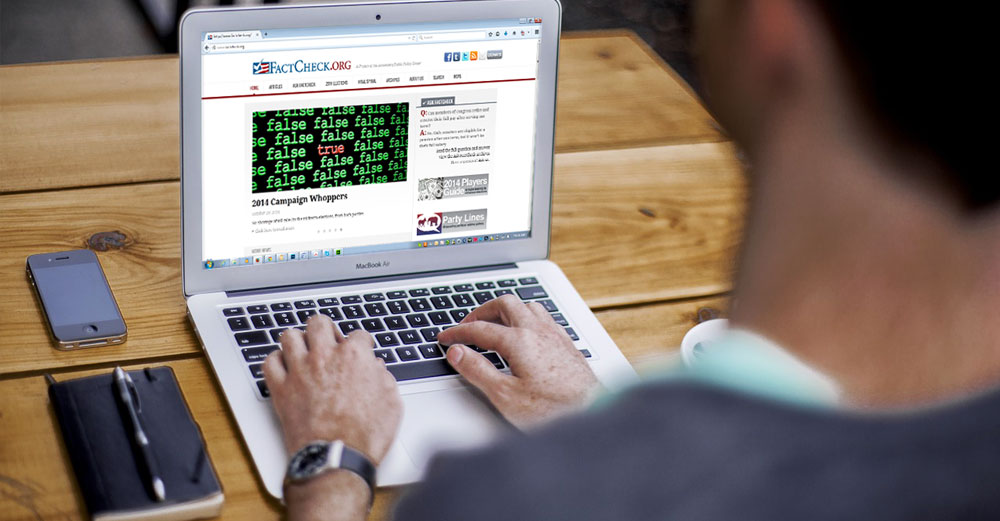Welcome to the Digital Age – a magical land where cat videos and viral memes reign supreme! But hold on a sec because lurking beneath all that fun stuff is a whole bunch of misinformation just waiting to trip us up. Lucky for us, we’ve got a secret weapon: fact-checking. So, grab a cuppa and settle in because we’re about to dive deep into why fact-checking is our lifesaver in this wild digital ocean and how it can help us steer clear of those pesky misinformation icebergs.
The Spread of Misinformation
Picture this: we’re living in a world where information zips around faster than a lightning bolt, and, unfortunately, that means misinformation can spread like wildfire. Imagine Aunt Susan hitting send on that “miracle diet” email to her entire contact list, your BFF sharing a dodgy news article on social media, and your neighbor going all in defending some wild conspiracy theory.
Also, if you are looking for the best US casinos, you’ll have to get the facts right; otherwise, you’ll trust misleading information. Feels like we’re lost in a labyrinth of lies, right? But wait, there’s hope! Fact-checking can be our flashlight.
And let’s not sugarcoat it: misinformation is more than just annoying; it can be downright deadly. From health scares kicked off by bogus claims to political dramas ignited by fake news, the ripple effects are huge. Imagine folks skipping life-saving vaccines or entire elections getting tipped by misleading info. It’s like reality itself is under attack!
The Digital Age: A Breeding Ground for Misinformation
Misinformation is having a field day in this digital age, don’t you think? A lot of it comes down to how we behave online. We often find ourselves engaging with people who think just like us, creating these warm, comfy echo chambers. In these spaces, we’re way more likely to believe and share stuff that lines up with what we already think, no matter how crazy it sounds. I mean, unicorns in your backyard, really?
And then, there’s the whole thing about how fast info spreads these days. Just a quick tap and boom! A post can blow up and reach millions in no time. Plus, the internet lets us hide behind a screen, which makes it super easy to make up wild stories without anyone knowing it’s you.
What’s Fact-Checking?
The Oxford Dictionary says fact-checking is just digging deep to make sure things are accurate. But come on, that’s barely even the tip of the iceberg. It doesn’t touch on the how-to of fact-checking or all the different parts it plays a role in. And it completely ignores the whole social, political, and cultural spheres where fact-checking is now as routine as brushing your teeth.
It’s crucial to look past the buzzwords, “facts,” “fake news,” and whatever’s making the headlines. We need to think about fact-checking in the bigger picture—how it’s linked to our nature, our interactions, and how we connect with each other. Really, fact-checking is all about deep, investigative questioning. It involves a whole bunch of methods and practices.
Benefits of Fact-Checking
We all know we’re navigating a digital universe, don’t we? In this space, fact-checking isn’t just a nice-to-have; it’s a must-have. It helps us get a grip on things we already know about or are itching to know more about, keeps us updated, and puts the brakes on misinformation spreading faster than a rumor in a small town. So, here’s the scoop on why fact-checking is kind of a big deal:
- Stopping Misinformation and Fake News: Okay, so we all know the internet is a wild place, and there’s a ton of info flying around – and surprise, surprise, not all of it’s true. That’s where fact-checking comes in. It helps us sort out what’s real from what’s not. Remember when COVID-19 hit, and suddenly, everyone was sharing these so-called miracle cures and treatments? Fact-checking was the superhero that swooped in to debunk those myths and give us the real deal.
- Making Informed Decisions: Having the right info at our fingertips means we can make smarter decisions. Take elections, for example. Fact-checking helps us figure out a candidate’s track record and where they stand on important issues. So, when it’s time to vote, we can make a choice that we feel good about.
- Avoiding Misdirection: Fake news can lead us astray big time. Fact-checking is basically our navigation system, keeping us on track. Hey, remember the Australian bushfires in 2019-2020? There were tons of conspiracy theories buzzing around about the cause. Fact-checking was the breath of fresh air that cleared up the smoke and zeroed in on the actual issues, like climate change.
- Identifying Bias: Let’s be real; news and info sources usually have their own spin on things. Fact-checking helps us catch these slants and get the full view. Ever picked up on how two newspapers can cover the same event in completely different ways? Fact-checking is like our detective work that helps us put all the pieces of the puzzle together.
- Becoming Media Literate: In a world drowning in a sea of info, the ability to sort through and make sense of media is crucial. Fact-checking is like our power-up that boosts our media smarts. You know those viral social media posts that totally suck you in at first glance? A bit of fact-checking can peel back the curtain and show us what’s actually happening backstage.
Conclusion
Fact-checking is a must-have gadget in our digital toolkit. It makes sure the info we’re chatting about is spot on, helps us all make smart decisions based on the real deal, and gears us up to be media-savvy, critical info consumers. So, my friend, go out there and fact-check like a champ! Let’s make sure the internet stays a space where truth outshines tall tales.
